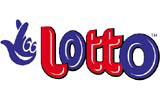Taking a Lotto on
Clare Dowdy speaks to Camelot commercial director Phil Smith about Landor Associates’ Lotto naming and co-ordinating a £26m rebranding programme

Phil Smith is a career marketer. Since leaving Oxford in the 1970s, he’s held marketing and senior posts at well over half a dozen companies. And he has the work-life thing sussed in a way that suits him: he lives near work, returning to his large family in Gloucestershire at the weekends.
For his current posting at Camelot, this means living in Rickmansworth. It must be strange, taking over a marketing department mid-way through a £26m rebranding programme, but that is the position Smith now finds himself in.
Smith joined Camelot in January as commercial director, effectively replacing Ian Milligan who left his post as sales and marketing director to spend more time with his family in Manchester.
The renaming of the game as Lotto by Landor Associates (DW 9 May), the Billy Connolly ad campaigns and other promotional activity around Lotto were already well underway. Similarly, the new in-store consoles and plasma screens were also decided upon.
So Smith’s job, initially at least, is one of implementation and managing existing relationships. But if all goes to plan, his impact will soon be felt much more widely than that.
As licence-holder of The National Lottery, Camelot is guardian to a massive brand that enjoyed 99 per cent awareness. Under the new name Lotto, awareness is already above 90 per cent. But recognition alone can’t guarantee performance: Camelot’s sales were down 3 per cent for the year ending 31 March, compared to the previous year, with pre-tax profit for the same period down to £57.8m from £61.1m.
So Camelot is a place where there is the potential to make a difference. ‘I joined because of the challenge of the brand,’ says Smith, adding that he felt he could contribute to the reversal in Camelot’s fortunes. Though he admits business performance won’t be an overnight turnaround.
‘Our goal is to have a number with a plus,’ he says, ‘but I don’t expect rocketing sales.’ To this end, Smith is looking to improve the thoroughness of the implementation, and to review the process by which consultancies are managed. ‘We will give projects a better defined start, middle and end,’ he says.
But Camelot’s regular consultancies, which includes Landor, and ad agencies, can sleep easy, for the moment at least. He has no immediate plans to make any changes to the line-up, which was reviewed last year.
Smith is in charge of an annual budget of £72m and a 40-strong marketing team based, along with the rest of Camelot, in a business park outside Watford. As well as marketing, he’s also responsible for the sales team, the player and retail services people.
Marketing is split into ‘player understanding’, ‘game development’ and ‘marketing communications’ divisions.
At the moment, Smith is recruiting for a director of marketing communications, which will allow him to be ‘more externally focused’. And a sales director has already been appointed.
The rebranding of The National Lottery to Lotto was primarily an effort to drive up sales by getting lapsed players to reassess the game. To this end, there’s innovation aplenty in the retail environments and the games themselves.
A new game, Hot Picks, makes its debut in July. Rather than suffering game fatigue, players actually like increased variety, according to Camelot. ‘People welcome more ways to play,’ Smith says.
And plasma screens are being introduced into bigger stores: 500 initially, with 5000 smaller digital media screens in Instants stores. These will show promotions, results, upcoming jackpots and other prize news. Content for the in-store screens is being created by E-Media.
In September, 24 000 outlets will be equipped with new in-store furniture. In all, Camelot will be investing around £14m over the next two years on the new look in retailers.
But getting more out of existing players is only half the story. Smith has plans to make more of two relatively untapped consumer groups: youth and subscribers.
At the time The National Lottery launched, 18to 24-year-olds participated in line with the rest of the population. But they have since grown up, without being replaced in such numbers by the next generation.
Smith says there are a number of things in the pipeline to get youth on board, and Camelot already runs Lottery advertisements in Emap’s youth-oriented titles. However, he can’t reveal the targets for this group.
‘Subscriptions is another big growth opportunity for us,’ he says. This way of playing was originally introduced for people with no retail site access, the cash-rich time-poor among us who played on-line. Over the past few months Camelot has been growing the business through Internet and quality press advertising.
‘That business is growing dramatically from a small basis,’ Smith adds. Today it’s well under half a per cent of sales, but there’s the opportunity to grow it many times over, he believes.
It remains to be seen what difference Landor’s rebrand can make to the game and to Camelot. One thing’s for certain – Smith will be there to witness it first hand.
Phil Smith’s CV
1977 BA(Hons) degree in classics from Jesus College, Oxford
1977-79 Graduate trainee for Tube Investments
1979-81 Sharwood’s brand and marketing management
1981-83 Brooke Bond, Oxo brand and marketing management
1983-86 Alberto Culver, brand and marketing management
1986-96 Kraft Foods, holding a number of senior posts, including group marketing director in the UK and European vice-president for strategy and development
1996-99 On the board of Kwik Save, first as group marketing director, then as trading director. Became marketing director when Kwik Save merged with Somerfield
2000 Chief operating officer for Internet games developer Searchlight Systems
Nov 2000 Deputy managing director for on-line home improvement business Improveline
Jan 2002 Commercial director, Camelot
-
Post a comment



